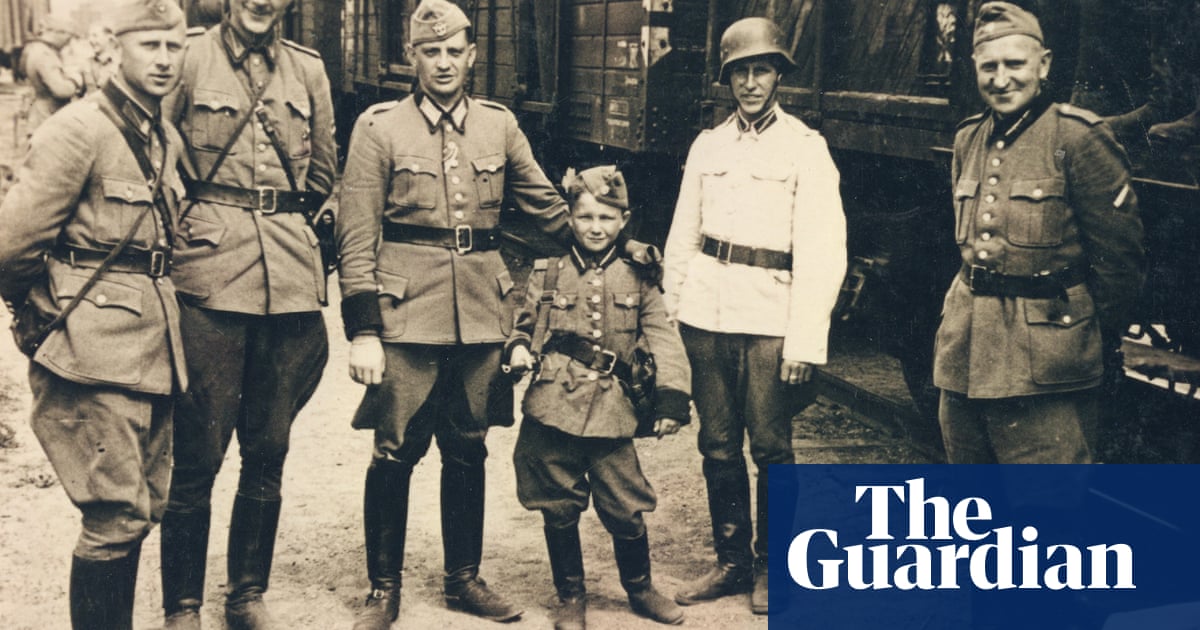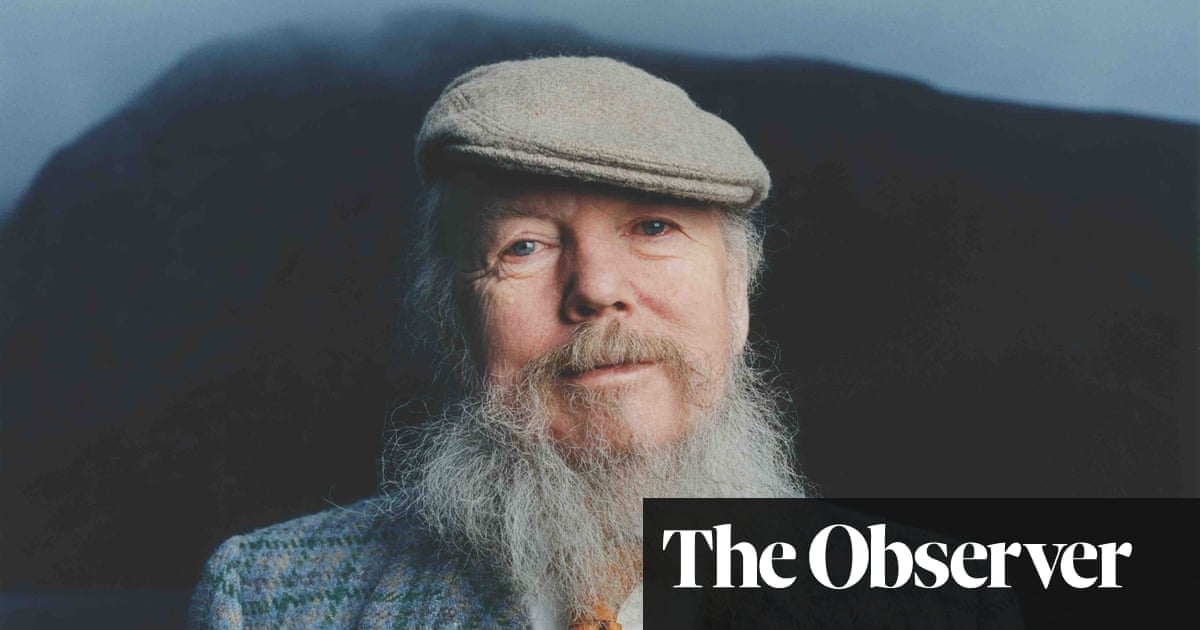
The way Jordi Cruyff tells the story, the way his mum and dad always told it, one day Johan Cruyff turned to the family, and said: “Listen, I have to put my boots back on: we’re going to the US.” There is a pause, a smile, and Jordi adds: “‘We fly in five hours.’”
He was only four but he has heard it often and, like everything else, it was a lesson. Listening to him on the morning Barcelona unveil a statue of their spiritual father, his actual father, there are many of them: moments that helped shape him, that shaped them all. “He reached so many people, touched them,” Jordi says. There may be no one who influenced football like he did.
Jordi has not prepared a speech. He has only just found out it is today he has to talk, not the following evening when the Johan Cruyff stadium is inaugurated at Barça’s Sant Joan Despí training ground. Named for a man who believed in development, forming an identity, it is appropriate it will be used by youth teams. The speech will be short, Jordi says, and anyway he prefers to improvise. “This is my dad, not me,” he says. “The person who had to speak isn’t here.”
Cruyff died in March 2016 but he is always there. On the mantelpiece there are three Ballons d’Or. The key to the city of Barcelona is on a shelf, Netherlands, Barcelona and Ajax shirts hang, and a picture of his most iconic Barcelona goal covers the wall. While there is something important in that line – “this is my dad, not me” – he is there in Jordi, whose father gave him everything, including that surname and that first name, the same as Catalonia’s patron saint – a story Johan told with a mischievous grin. And now he is there in bronze by the Camp Nou.
“My father would say: ‘Here I am,’” Jordi will say later.
Beneath the statue is perhaps Cruyff’s most famous line, from just before the 1992 European Cup final: “Go out there and enjoy it.” The statue expresses his legacy, ideas, teachings. “It’s harder than you imagine to get a statue right,” Jordi notes. “I have a vision of him, other people have a different one.” There are different teachings, which is where the day Cruyff came out of retirement comes up, helping explain why Jordi embarked on his own fascinating journey.
Cruyff had invested in a failed pig farm. He had no choice but to play again. When he did, heading to the NASL, it took him 125 seconds to score on his debut. He played for a further six years, later saying it had been a mistake to give up so early.
“I learned from my dad, the way he talked about his mistakes. He lost everything, everything,” Jordi says. “And when you trip up you don’t do it again. You try to ensure others don’t either. He always talked about a plan B. He hadn’t finished school and insisted we did. He looked at life experiences, saw what he didn’t have, took lessons and gave us them.
“If you ever asked him for money, for example, you had to earn it. If I got bad grades, he stopped me playing football. He was affectionate with us but strict, demanding.”
Jordi studied business while at Barcelona; at Manchester United he did a postgraduate degree in marketing with Roberto Martínez. A curiosity, chance too, took him from there to Malta, Cyprus, Israel, Ukraine and China. “I like strange challenges,” he says.
It was not always easy being Cruyff’s son. Jordi recalls comments that “hurt” at school and accusations of nepotism or failure. “It happens: look at Míchel’s son, Zidane’s,” he says. “But look at my figures and it was logical [to reach the first team]. All the years at Barcelona I had a B-team contract. ‘They’ll never be able to say you made money because of me.’ When I went to United in 96, my salary jumped from youth teamer to Premier League.”
Jordi was mature enough not to waste it; he invested in a small flat he still has. He was not, though, mature enough to succeed and constant injuries ruined things. “It was hard for me and it’s my fault,” he says. “I’ve always liked city life, being within walking distance of everything, but everyone lived to the south. It lacked something for me. It was hard to adapt: the food, the hours, the lack of sun – that light gives energy. Daft things. If I’d gone a year later, maybe, but I was only 21. I also struggled to fully grasp the scale of the club.”
But you had come from Barcelona. “Yes, but it was more. You’d go to China, Hong Kong, and there were thousands and thousands and thousands of people. It’s changed but they were a long way ahead on a lot of things then – maybe they still are on some. The football was totally different, too. People in Spain got up from their seat for a good dribble. In England people got up for a flying tackle.
“It’s changed, though. Pep Guardiola has proved – others have too – that you can play touch and possession.” As Jordi discusses the way Guardiola, a disciple of Cruyff, approaches the game an idea forms: “It’s a pity Guardiola, when he was an option, didn’t go to United. City is a big club with history: even in the second division they’d get 30,000 and they had that Barcelona triangle, with Txiki [Begiristain] and Ferran [Soriano]. But it’s a pity he didn’t go to United, which was a symbol of winning.”
From United, Jordi went to Alavés, scoring in the 2001 Uefa Cup final against Liverpool, then Espanyol. Ukraine and Malta followed and he is on his seventh country now, China. He has been player, coach, sporting director. He changed Maccabi Tel Aviv, coming to dominate Israeli football and propelling the careers of managers including Oscar García, Slavisa Jokanovic, Pako Ayesterán and Paulo Sousa. He employed himself as coach – sacked himself too. Asked how you convince a player to join you in the places he has worked, he thinks about his current job coaching Chongqing Dangdai Lifan and laughs. “Well, in China it’s easy.”
Little else is. He discusses how his father’s principles – possession, dominating – evolve and have to be tailored to players. He talks about language, character, lifestyles; returns home to talk about the work done at the Cruyff Foundation, and the youth system down the hill at Barça; how their best players are stolen by English and German teams at 15, 16. He talks about the social divide there. Cruyff’s statue may help to unite a club where there have been cleavages: the symbolism is important and reconciliation, unity, was one of his dad’s final wishes. Jordi talks too of his own future – there or elsewhere, he does not know. About all the lessons learned, from his father and his own journey, what it all means.
At Maccabi his team were forced to play home games away. “We had Muslim and Jewish players and I was watching, interested. ‘Will they argue?’” he says. “But sport has a power politics never manages, a capacity to unite people that nothing else has. When the game came, the ball brought them together.”The Guardian Sport












